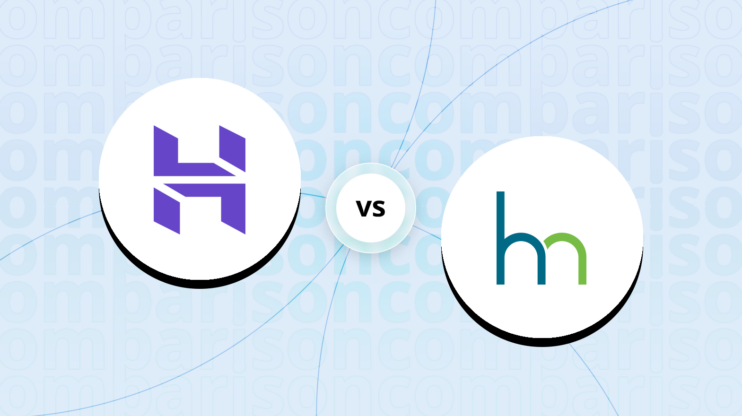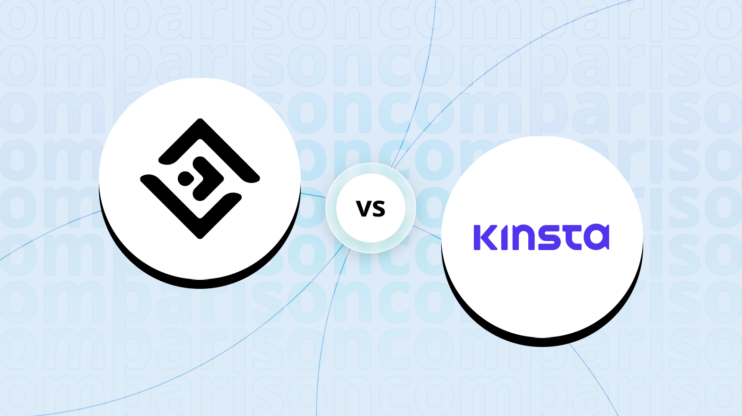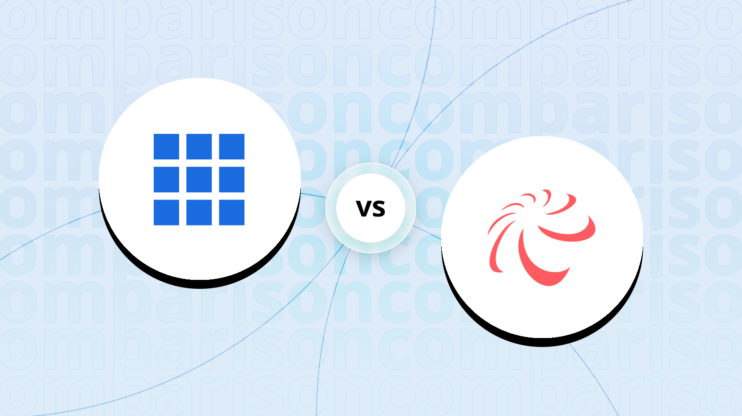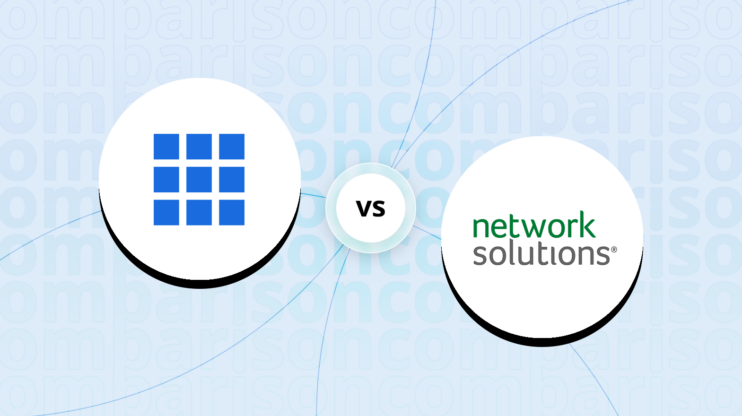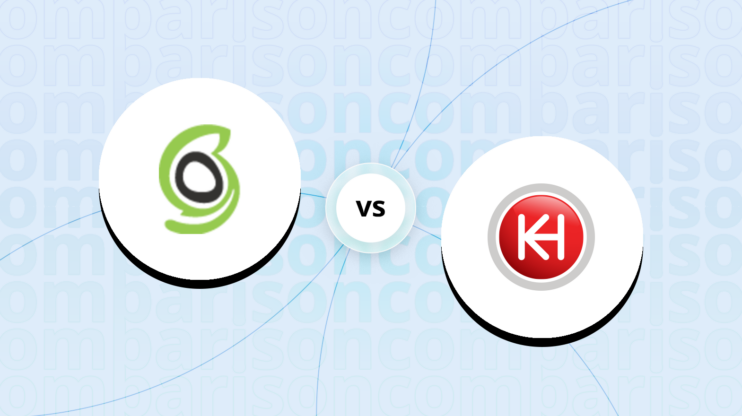WP Engine vs StableHost: Final verdict
Looking over WP Engine vs. StableHost, it’s clear why both hosts are so popular. They have both hosted millions of
websites that run on WordPress for decades, building up a loyal customer base.
-
WP Engine (Overall grade: 8.6)
is a standout choice for WordPress hosting due to its dedicated focus on the platform. It features advanced security, automated backups, and EverCache® technology for enhanced performance. WP Engine also excels in uptime, with a 99.99% Service Level Agreement and an average server response time of 489ms. While it does not provide shared or VPS hosting, it compensates with specialized ecommerce and WordPress hosting plans, making it ideal for users seeking a robust and reliable WordPress-specific service. -
StableHost (Overall grade: 6.9)
offers a broader range of hosting services, including shared, VPS, and WordPress hosting, making it a versatile solution for various user types. It ensures reliable performance with a 99.9% uptime guarantee and clustered hosting for better availability. The platform provides essential features like unlimited email accounts, free SSL certificates, and daily backups at competitive prices. However, it lacks the specialized WordPress optimizations and higher-grade security features offered by WP Engine, which limits its appeal for users specifically focusing on high-performance WordPress sites.
 Overall grade:8.6 |
 Overall grade:6.9 |
|
|---|---|---|
| Uptime and Availability | 9.6 | 9.0 |
| Hosting Performance | 9.1 | 7.2 |
| Hosting Security | 9.4 | 8.5 |
| Price | 8.1 | 8.4 |
| Hosting Features | 6.8 | 5.9 |
| Ease Of Setup | 8.3 | 8.2 |
| User Management | 8.8 | 0.0 |
| Customer Support | 8.9 | 7.6 |
| User feedback | 4.6/5 | 4.8/5 |
Hosting types offered
Both platforms provide a variety of hosting types, each designed to meet the different needs of users.
 |
 |
|
|---|---|---|
| Shared hosting | ||
| Cloud hosting | ||
| WordPress hosting | ||
| Ecommerce hosting | ||
| VPS hosting | ||
| Dedicated hosting |
Although both offer a variety of hosting plans tailored to different needs, in
certain cases, one platform may prove to be more suitable.
Detailed comparison
Uptime and availability
Evaluates the average uptime statistics, uptime guarantee and overall availability of the hosting
provider
Score Components:
- Uptime percentage (30%): evaluates the uptime statistics in given period of time
- Uptime guarantee (20%): Assesses if the platform offers an uptime guarantee and
whether the actual uptime matches the promised guarantee. - General performance (25%): Evaluates how fast is the average response time and overall
it’s stability. - Responsiveness (10%): Adaptability to different devices and screen sizes.
- Availability (25%): Reflects the total downtime and number of outages.
 9.6
9.6
 9.0
9.0
Winner WP Engine: Offering unparalleled uptime and comprehensive server monitoring, WP Engine stands out.

WP Engine excels with a top-tier 99.99% Service Level Agreement (SLA) and consistent 100% uptime over a two-month period. The platform employs 24/7 uptime monitoring, ensuring the swift detection and resolution of any issues, further bolstered by an impressive average server response time of 489ms. Their global data centers help minimize latency, contributing to reliable site performance across different regions.

StableHost offers a commendable 99.9% uptime guarantee and features clustered hosting for enhanced availability. While they showcase zero recorded downtime over a monitored month, there are notable fluctuations in response times. Their various server locations and 24/7 technical support result in a solid hosting choice. However, WP Engine’s superior uptime performance and stricter SLA make it the preferred option.
Which one has better hosting performance?
Score Components:
- Hosting speed (30%): This includes SSD quality, Load times, PageSpeed score ranges,
additional information on website speed, built-in plugins for performance enhancement, available caching
methods, and CPU/RAM options - CDN (20%): Considers whether CDN is available or not, whether it’s free or paid, and
the quality of the CDN service - Available data centers (30%): Evaluates the number of data centers and their locations
globally. - Scalibility (20%): Looks at whether elastic scaling is available, the process required
to scale (manual upgrade vs. automatic scaling), the presence of dedicated servers, and the costs
associated with scaling.
 9.1
9.1
 7.2
7.2
🏆 Winner
WP Engine: Superior performance and reliability for WordPress sites.
When comparing WP Engine and StableHost, WP Engine excels in speed and overall performance. WP Engine utilizes SSD storage and offers proprietary EverCache® technology, leading to fast page load times which are crucial for SEO and user retention. It includes a comprehensive CDN with over 200 points of presence, ensuring optimal performance no matter the location. With data centers spanning multiple continents, the reach and reliability of WP Engine stand out. On the other hand, StableHost also uses SSD drives and LiteSpeed web server, offering customized performance tweaks and unlimited bandwidth, backed by data centers in Phoenix, Chicago, and Amsterdam.
Website Speed
WP Engine’s speed is supported by EverCache® technology, global CDN, and the latest PHP versions, resulting in notably fast page load times. Their platform is optimized for Core Web Vitals, essential for Google rankings. StableHost leverages modified LiteSpeed, PHP, and MySQL for a quick load experience, offering a 200Gbps network capacity to handle high traffic. While StableHost performs efficiently, WP Engine’s WordPress-specific enhancements make it more optimized for speed.
Scalability
WP Engine’s architecture supports automatic scaling, efficiently handling traffic spikes without requiring transitions between plans. While they offer isolated resources for stable performance, the costs for scaling aren’t specified. StableHost also supports traffic spikes through smart load balancing and automatic failover but lacks details on how scaling costs are managed. Overall, WP Engine provides a more streamlined approach to scaling, especially for high-traffic WordPress sites.
Which one has better security features?
and regulatory requirements
Score Components:
- Technical security measures (40%): This includes encryption, firewalls, DDoS
protection, secure configurations, server monitoring, access control and availability of security addons
(e.g Sitelock security). - Operational security measures (30%): Encompasses data privacy, backups and data
redundancy. - Compliance and certifications (20%): Adherence to legal and regulatory requirements
(e.g., GDPR, HIPAA) and possession of certifications (e.g., ISO 27001, SOC 2). - Business and reliability (10%): Factors in the provider’s reputation, uptime
guarantees, and customer support.
 9.4
9.4
 8.5
8.5
🏆 Winner WP Engine: A hosting provider renowned for its high-level security measures and extensive compliance certifications.
Both WP Engine and StableHost have notable differences in their approaches to technical and operational security, as well as in their compliance with regulations.
Technical security measures:
WP Engine and StableHost both offer strong technical security measures, but WP Engine excels with its enterprise-grade technology. WP Engine automates threat detection, blocking 72 million attacks daily and providing continuous monitoring. It also includes advanced DDoS mitigation, a managed Web Application Firewall (WAF), data encryption, and daily backups. Conversely, StableHost provides SSL certificates, multiple PHP versions, security audits, and VPN services, but lacks the same extent of automated and proactive threat management seen in WP Engine.
Operational security measures:
WP Engine’s operational security includes automated updates, proactive threat detection, and a live team for real-time security management. This setup ensures vulnerabilities are quickly addressed, and threats are mitigated instantaneously. StableHost offers 24/7 server monitoring, daily backups, virus/spam filtering, and WAF in some plans. WP Engine’s monitoring and support are more integrated, offering a more seamless approach compared to StableHost.
Compliance and certifications:
WP Engine is SOC-2 compliant and ISO 27001-2013 certified, meeting high standards for security and availability. It also offers PCI compliance scanning, though results may vary. StableHost is GDPR compliant and provides customers with a Personal Data Assistance Agreement, but lacks specified details about HIPAA and PCI compliance.
 |
 |
|
|---|---|---|
SSL certificate |
Free SSL certificates |
Multiple SSL options |
Additional security features |
Two-factor authentication, Global Edge Security, daily backups |
Security audits, VPN services |
PHP versions |
Not specified |
PHP 7.x and PHP 8.x |
GDPR compliance |
Not specified |
GDPR compliant |
HIPAA compliance |
Not specified |
Not specified |
PCI compliance |
Scanning, results may vary |
Not specified |
Hosting features
Score Components:
- Domains (20%): Assesses the availability of a free domain, domain purchase options, and
pricing - Email (15%): Considers if the provider offers full email hosting, or is reselling
third-party service, and if the email is only transactional or not - Website builder (15%): Checks if website builder is available, and it’s user
friendliness and overall the level of customization allowed. - Staging environment (20%): Determines if a staging environment is available, allowing
for testing changes before going live. - FTP & SFTP accounts (10%): Evaluates if and how easily users can access FTP and
SFTP accounts - Git and SSH access (20%): Assess whether Git is integrated into the hosting service and
if SSH access is provided
 6.8
6.8
 5.9
5.9
🏆 Winner: WP Engine: A premier choice for optimized WordPress hosting with advanced features.
When comparing WP Engine and StableHost, it’s evident that both hosting providers offer robust and versatile solutions tailored to different user needs. WP Engine stands out with its specialized focus on WordPress, providing users with a streamlined builder optimized for the platform, featuring both ease-of-use and depth for complex customizations. Their end-to-end management approach, which includes automated backups and updates, ensures that users can focus on content creation without worrying about backend maintenance. WP Engine’s free automated migration plugin and a suite of premium WordPress themes are additional perks that add significant value, potentially reducing operational costs and simplifying the migration process for users.
StableHost, on the other hand, caters to a broader audience with various technologies and languages supported, including PHP, Perl, and Python. Their Site.Pro Web Builder is user-friendly, making it a good choice for newcomers who require straightforward site-building tools. With unlimited email accounts, free SSL certificates, and daily R1Soft backups, StableHost ensures essential services are included without extra charges. However, perks such as SSH access come with additional fees, which might affect the decision-making process for cost-conscious users. Unlike WP Engine, StableHost’s offerings aren’t centered around WordPress, but they provide a flexible, general-purpose hosting solution.
 |
 |
|
|---|---|---|
Free domain |
No |
No |
Free SSL |
Yes |
Yes |
Email hosting |
No |
Yes |
Website builder |
Yes |
Yes |
Staging environment |
Yes |
No |
FTP & SFTP account |
Yes |
Yes |
Git and SSH access |
Yes |
Yes (additional fee) |
Free backup |
Yes |
Yes |
Money back guarantee |
Yes |
Yes |
Both providers support a range of users from beginners to experts with user-friendly website builders and WordPress staging areas. However, in terms of developer tools, both WP Engine and StableHost offer robust options including SSH access, support for multiple programming languages, and Git for version control, thus appealing to developers looking for advanced capabilities.
Email services:
WP Engine focuses on hosting and doesn’t offer email hosting services, possibly steering users toward third-party solutions like Google Workspace or Zoho for advanced email needs. StableHost, conversely, includes unlimited email accounts, forwards, autoresponders, and mailing lists as part of their package, making it a more comprehensive choice for users who need built-in email services. This capability is well-suited for small businesses or users managing multiple email accounts directly from their hosting provider.
Price
Score Components:
- Plan value (40%): What each pricing tier offers.
- Transparency and clarity (30%): Clearness of pricing structures.
- Flexibility of plans (20%): Range of options to suit different budgets.
- Hidden costs (10%): Additional expenses not included in the plan.
 8.1
8.1
 8.4
8.4
🏆 Winner StableHost:StableHost stands out with its wide range of plans and economical pricing for various hosting needs.
Evaluating the pricing of plans among various hosting providers can be complex due to their differing pricing and renewal strategies. Additionally, certain plans require annual commitments, which adds to the difficulty of making comparisons. The prices listed are based on monthly commitments; plans requiring annual commitments are indicated. Additionally, although some providers offer identical plans for WordPress and shared hosting, we have created separate tables for each to enhance clarity.
When comparing WP Engine and StableHost, there are notable differences in their pricing and features. WP Engine offers premium managed WordPress hosting with advanced features such as EverCache®, global CDN, and Genesis blocks starting at $20/month, scaling up to custom plans at $600/month. On the other hand, StableHost provides more budget-friendly options like their Mini plan starting at $0.90/month, with unlimited disk space and bandwidth on higher plans like Pro and Platinum. WP Engine focuses on managed WordPress solutions with robust security features, while StableHost offers versatile shared, VPS, reseller, and WordPress hosting options with competitive pricing and essential features such as SSL and anti-spam protection.
 |
 |
|---|---|
|
Startup$20/month
1 site, 10 GB local storage, 50 GB bandwidth, chat support, SSL, EverCache®, Genesis blocks, backups Value for price:8.0
|
Starter$8.59/month
Unlimited disk space, 1 site, unlimited bandwidth, 300k visitors, email, WAF, SSL, anti-spam Value for price:9.2
|
|
Professional$40/month
3 sites, 15 GB local storage, 125 GB bandwidth, phone & chat support, SSL, EverCache®, Genesis blocks, backups Value for price:8.1
|
Pro$15/month
Unlimited disk space, unlimited websites, unlimited bandwidth, 300k visitors, email, WAF, SSL, anti-spam Value for price:8.9
|
|
Growth$77/month
10 sites, 20 GB local storage, 200 GB bandwidth, priority support, SSL, EverCache®, Genesis blocks, backups Value for price:8.3
|
Platinum$38.99/month
Unlimited disk space, unlimited websites, unlimited bandwidth, 300k visitors, email, WAF, SSL, anti-spam Value for price:8.6
|
|
Scale$194/month
30 sites, 50 GB local storage, 500 GB bandwidth, priority support, SSL, EverCache®, Genesis blocks, backups Value for price:8.0
|
N/A |
|
CustomStarting at $600/month
Contact sales for sites, storage, bandwidth. Includes premium onboarding, dedicated technical account manager Value for price:7.4
|
N/A |
 |
 |
|---|---|
| N/A |
Mini$1.50/month
3 email accounts, 5GB disk space, 500GB traffic, SSL, site builder Value for price:7.7
|
| N/A |
Starter$10.59/month
Unlimited disk space, 1 website, unlimited bandwidth, email, site builder, SSL, anti-spam Value for price:8.5
|
| N/A |
Pro$15.99/month
Unlimited disk space, unlimited websites, unlimited bandwidth, email, site builder, SSL, anti-spam Value for price:8.9
|
| N/A |
Platinum$40.99/month
Unlimited disk space, unlimited websites, unlimited bandwidth, VIP support, SSL, anti-spam Value for price:8.8
|
 |
 |
|---|---|
|
eCommerce Platform$24/month
Contact sales Value for price:7.3
|
VZ 1GB$10.95/month
1GB RAM, 1 core CPU, 40GB storage, 2TB transfer, 1000Mbit network Value for price:8.2
|
|
Headless WordPressFree
Contact sales Value for price:7.1
|
VZ 2GB$16.30/month
2GB RAM, 2 core CPU, 60GB storage, 2TB transfer, 1000Mbit network Value for price:8.4
|
| N/A |
VZ 4GB$32.95/month
4GB RAM, 4 core CPU, 100GB storage, 4TB transfer, 1000Mbit network Value for price:8.4
|
| N/A |
VZ 8GBN/A
8GB RAM, 6 core CPU, 200GB storage, 8TB transfer, 1000Mbit network Value for price:N/A
|
| N/A |
VZ 16GBN/A
16GB RAM, 8 core CPU, 300GB storage, 16TB transfer, 1000Mbit network Value for price:N/A
|
Enterprise plans
When considering enterprise-level hosting, WP Engine’s Custom Plan starts at $600/month and includes advanced options such as premium onboarding, a dedicated technical account manager, and performance monitoring. StableHost’s high-tiered plans like the Platinum shared hosting and advanced VPS options may also cater to large businesses, guaranteeing excellent scalability and robust features at a more accessible price point. Each provider targets different aspects of enterprise needs, making it essential to choose based on specific requirements.
WP Engine vs StableHost: Ease of setup
platform.
Score Components:
- Site migration (25%): Assesses whether the provider offers tools for site migration,
either automated or manual, and whether these services are free or require a fee. - Admin panel usability (35%): Evaluates the type of admin panel provided, such as the
standard cPanel or a custom solution, focusing on its accessibility and user-friendliness for both
technical and non-technical users. - Setup features (20%): Examines the availability and ease of use of various setup
features, including FTP accounts, file managers, email account setup, PHPMyAdmin, and easy CDN
configuration. - Help center quality (20%): Measures the quality and accessibility of the provider’s
help center resources, including articles and tutorials.
 8.3
8.3
 8.2
8.2
🏆 Winner WP Engine: A user-friendly WordPress hosting platform with advanced migration tools and excellent customer support.
WP Engine offers a user-friendly custom admin panel that is optimized specifically for WordPress. It includes a range of developer tools such as Git Push and SSH Gateway setup, making it accessible for both beginners and experienced developers. The platform provides detailed information on security and performance configurations, helping users optimize their sites effectively. For those who require more assistance, WP Engine offers 24/7 expert support via phone and chat.
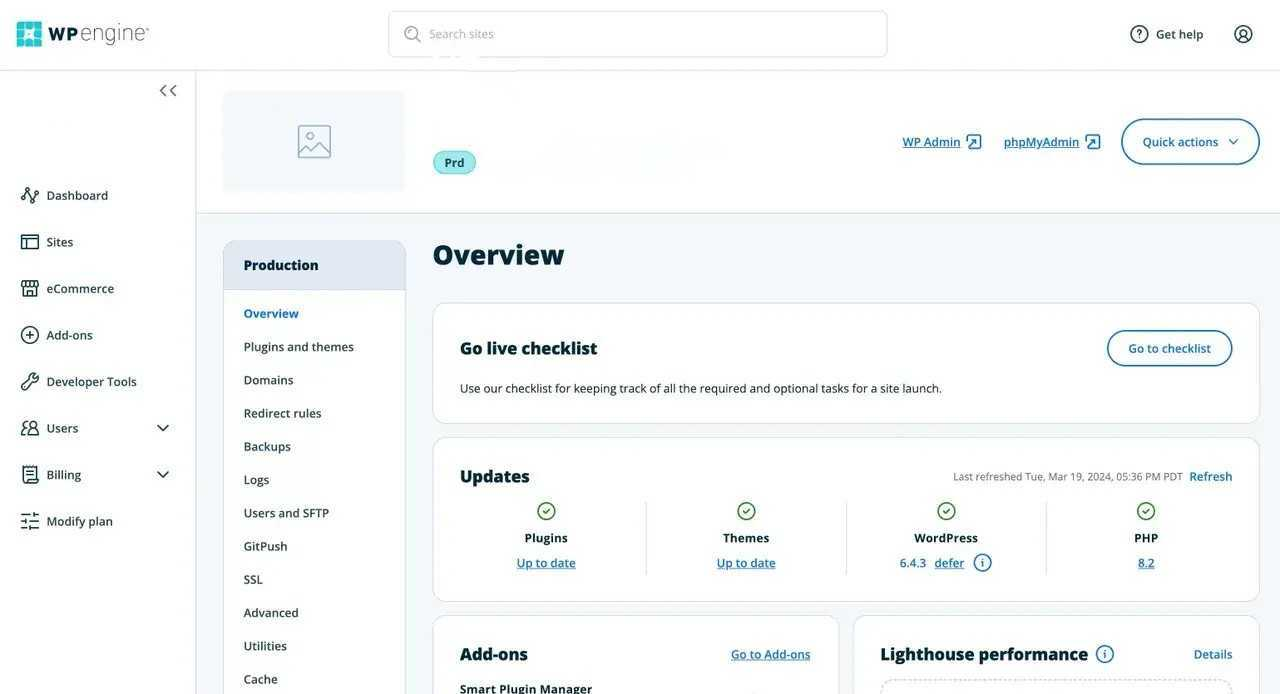
StableHost, on the other hand, relies on standard solutions like cPanel and SolusVM for managing shared, reseller, and VPS hosting. These control panels are known for their user-friendly interface, allowing both technical and non-technical users to navigate with ease. Additionally, StableHost includes a one-click script installer and the Site.Pro Web Builder, catering to users who prefer a drag-and-drop interface. Their admin panels are comprehensive and support various features like unlimited MySQL databases and email accounts.
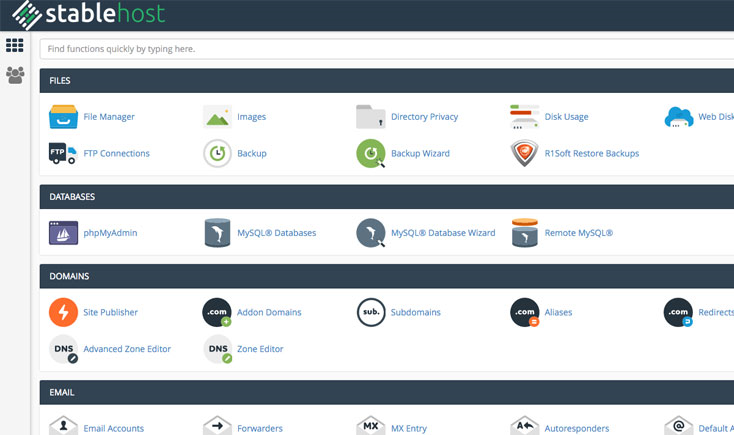
In terms of migration tools, WP Engine excels by providing a free Automated Migration plugin that simplifies the process considerably. This automated service can be set up within minutes, making it easy for users to switch to WP Engine. If users find the automated process incompatible, detailed guides for manual migration are available, with 24/7 support to assist as needed. StableHost does not mention specific migration tools, which may imply that users have to rely on manual processes or third-party solutions. Comparing these aspects, WP Engine’s automated migration plugin offers a more streamlined and user-friendly experience.
WP Engine’s help center is comprehensive, offering a wide range of articles, video tutorials, and step-by-step guides. Their support center covers topics from setting up a website to advanced developer tools and security features. StableHost’s help center also includes numerous articles and guides, written by technicians to aid users with their hosting needs. Both providers offer 24/7 support; however, WP Engine’s focus on expert WordPress support and additional resources gives it an edge in quality and accessibility.
User management
accessibility.
Score Components:
- Role customization (40%): Flexibility in creating and defining user roles and
permissions. - Ease of management (30%): User interface and tools for managing users.
- Access control (20%): Effectiveness of access control measures for different user
levels. - Scalability (10%): Ability to manage a growing number of users efficiently.
 8.8
8.8
 0
0
🏆 Winner WP Engine: Comprehensive and flexible user management capabilities.
When comparing WP Engine and StableHost in terms of user roles and permissions, WP Engine stands out for its detailed user management features. WP Engine allows the creation, editing, and removal of users with precision, providing different levels of access such as Owners, Full users, and Partial users, each with distinct permissions. This granular control ensures that users have only the permissions they need. In contrast, StableHost lacks specific information on user management and roles, making it difficult to assess its capabilities in this area.
WP Engine’s user interface for managing users is straightforward and systematic. The User Portal allows administrators to add, edit, and remove users easily. The platform provides a checklist for Partial roles to specify accessible environments, ensuring clarity in user permissions. The tools available make managing user roles efficient and transparent, whereas StableHost does not present any details on the user interfaces or tools it provides for user management.
In terms of access control measures and scalability, WP Engine excels by offering detailed logging of account activities and the ability to filter logs by user, environment, domain name, and various actions. This facilitates efficient management of a growing number of users, while ensuring security and accountability within the platform. Without specific information on StableHost, it is challenging to evaluate its effectiveness in this regard, but in this comparison, WP Engine clearly provides a more comprehensive solution.
WP Engine user roles table:
| Role | Description | Access highlights |
|---|---|---|
| Owner | Full control of the account, including user and site management. | Can delete sites, manage users, initiate transfers, and purchase add-ons. |
| Full (with billing) | Access to most features except user and site deletion. | Can manage billing, enable/disable Smart Plugin Manager, and promote transferable sites. |
| Full (no billing) | Restricted billing access, but can manage environments and plugin manager. | Can accept transferable sites, but cannot initiate transfers or access billing. |
| Partial (with billing) | Limited to specified environments with billing access. | Can order add-ons, promote transferable sites for granted environments. |
| Partial (no billing) | Limited environment access without billing privileges. | Can copy and restore environments, but not create new ones. |
Customer support
hosting provider.
Score Components:
- Support communication channels (30%): Measures the variety of customer support types
provided (live chat, chatbot, email, phone, etc.) - Availability (20%): Assesses the availability hours for each channel, including 24/7
support options. - Technical support quality (30%): Assesses whether the provider offers comprehensive
technical support, including hardware upgrades (e.g., HDD to SSD), software installations, and web
server configuration changes. - Enterprise support (20%): Checks if there are dedicated or priority support services
for enterprise-level customers.
 8.9
8.9
 7.6
7.6
🏆 Winner
WP Engine: Superior around-the-clock support and specialized WordPress expertise.
 |
 |
|
|---|---|---|
Phone support |
||
Live chat support |
||
Chatbot |
||
Email/ticket support |
||
Enterprise support (dedicated agent, priority support) |

When comparing WP Engine and StableHost in terms of customer support, WP Engine stands out with its 24/7 availability and dedicated WordPress experts for troubleshooting and optimization. They offer assistance via phone and live chat for all customers, with premium plans providing access to more experienced support staff. WP Engine also features a detailed user portal, extensive knowledge base, and a generous 60-day money-back guarantee.

StableHost also provides notable support options including 24/7 technical assistance through phone, email, and live chat. Their sales and billing departments are accessible 9 AM to 5 PM MST, seven days a week. StableHost offers comprehensive resources like a knowledge base and FAQs on their website. Despite these solid support services, the overall satisfaction score is lower when compared to WP Engine, reflecting a higher customer preference for WP Engine’s expertise and support availability.
WP Engine vs StableHost: User feedback
WP Engine receives high praise for its exceptional customer support, user-friendly dashboards, and seamless integration with WordPress. Users consistently highlight the platform’s robust security features, automatic backups, and fast website performance. However, many reviews also point out that the service is costly compared to other hosting options, which might not suit smaller budgets or individual projects. Some issues with shared server performance and the costly nature of add-ons were also mentioned, but overall, WP Engine is considered a premium service worth its price for those who can afford it.
StableHost receives high praise for its reliable performance and excellent customer support, often described as prompt and helpful. Users appreciate its ease of integration, comprehensive setup guides, and rich feature set, making it an ideal choice for both novice and advanced users. While some advanced users find certain functionalities lacking and note higher pricing compared to budget-friendly options, the overall consensus is positive due to its strong uptime and user-friendly interface. The plans are seen as reasonably priced, especially with available discounts, though some users miss the immediate tech support response times of the past.
WP Engine vs StableHost: FAQ
Which platform is better suited for hosting WordPress websites?
WP Engine is better suited for hosting WordPress websites due to its dedicated focus on the platform, offering features like advanced security, automated backups, and EverCache® technology for enhanced performance. While StableHost does provide WordPress hosting, it lacks WP Engine’s specialized optimizations and higher-grade security features. Therefore, for high-performance and reliable WordPress hosting, WP Engine is the ideal choice.
Which hosting service offers better security features?
WP Engine offers superior security features, including automated threat detection, advanced DDoS mitigation, and a managed Web Application Firewall (WAF), continuously monitoring and blocking millions of attacks daily. StableHost provides essential security measures like SSL certificates, multiple PHP versions, and security audits, but it does not match WP Engine’s level of comprehensive and proactive threat management. Therefore, WP Engine leads in technical security.
Which platform offers better customer support?
WP Engine offers 24/7 customer support via phone and live chat, with specialized WordPress experts available for troubleshooting and optimization. While StableHost also provides 24/7 technical support through phone, email, and live chat, WP Engine’s dedicated focus on WordPress and premium support services make it the superior option for customer support.
Which hosting service offers more scalability options for growing websites?
WP Engine offers superior scalability options with its architecture supporting automatic scaling and handling traffic spikes without transitioning between plans. StableHost also supports traffic spikes through smart load balancing and automatic failover, but lacks detailed information on scaling costs and processes. Overall, WP Engine provides a more streamlined and efficient approach to scalability, especially for high-traffic WordPress sites.
How do the providers handle email hosting and what features are included?
WP Engine does not offer email hosting services, steering users towards third-party solutions like Google Workspace or Zoho. In contrast, StableHost includes unlimited email accounts, forwards, autoresponders, and mailing lists as part of their hosting packages, making it a more comprehensive choice for users who require integrated email services with their hosting provider.
What are the major differences in pricing and value between WP Engine and StableHost?
WP Engine offers premium managed WordPress hosting with advanced features starting at $20/month, scaling to custom plans at $600/month, focusing on robust security and performance. StableHost provides more budget-friendly options like their Mini plan starting at $0.90/month, with unlimited disk space and bandwidth on higher plans, catering to broader hosting needs. WP Engine’s plans are higher in price but offer specialized WordPress optimizations, while StableHost offers versatile and economical hosting solutions.
The making of this blog
We followed a clear, step-by-step process to write and research this article.









